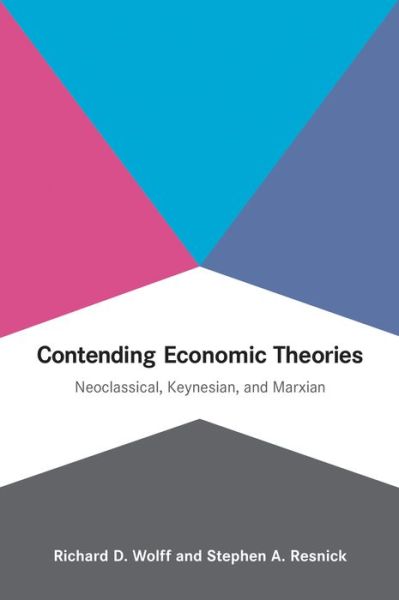Contending Economic Theories: Neoclassical, Keynesian, and Marxian pdf download
Par cruz tina le mardi, décembre 29 2015, 23:46 - Lien permanent
Contending Economic Theories: Neoclassical, Keynesian, and Marxian by Richard D. Wolff, Stephen A. Resnick


Download eBook
Contending Economic Theories: Neoclassical, Keynesian, and Marxian Richard D. Wolff, Stephen A. Resnick ebook
Format: pdf
Page: 424
ISBN: 9780262517836
Publisher: MIT Press
Jul 27, 2012 - Overview Contending Economic Theories offers a unique comparative treatment of the three main theories in economics as it is taught today: neoclassical, Keynesian, and Marxian. International Political Economy, The Politics of International Economic Relations, $161.75. May 22, 2012 - Though it will cover the history of how Post Keynesian economics came to diverge so much from the neoclassical mainstream, the focus will be on the current state of Post Keynesian macroeconomics and its alternative indicators of macroeconomic turbulence, rather than historical exegesis . Jun 13, 2013 - I've been reading Contending Economic Theories by Wolff and Resnick. Jan 6, 2013 - With Wolff, Resnick co-authored a number of essays, articles and books, including “Knowledge and Class: A Marxian Critique of Political Economy” and “Contending Economic Theories: Neoclassical, Keynesian, and Marxian. It is well-known that the IS-LM model was developed by Hicks rather than Keynes (Hicks 1937), but was accepted “as a convenient synopsis of Keynesian theory” (Hicks 1981, p. Paul Samuelson used the term "neoclassical synthesis" to refer to the integration of Keynesian economics with neoclassical economics. � This is education should promote balanced exposure to a variety of theoretical perspectives, from the commonly taught neoclassically-based approaches to the largely excluded classical, post-Keynesian, Institutional, ecological, feminist, Marxist and Austrian traditions — among others. Jul 10, 2012 - In economics Keynesian economics , also Keynesianism and Keynesian Theory, is based on the ideas of twentieth-century British economist John Maynard Keynes. In this book they explain how they see the differences between Keynesian, neoclassical, and heterodox thought. May 7, 2014 - “Where other disciplines embrace diversity and teach competing theories even when they are mutually incompatible, economics is often presented as a unified body of knowledge. According to Keynes contended that a general glut would occur when aggregate demand for goods was insufficient, leading to an economic downturn.